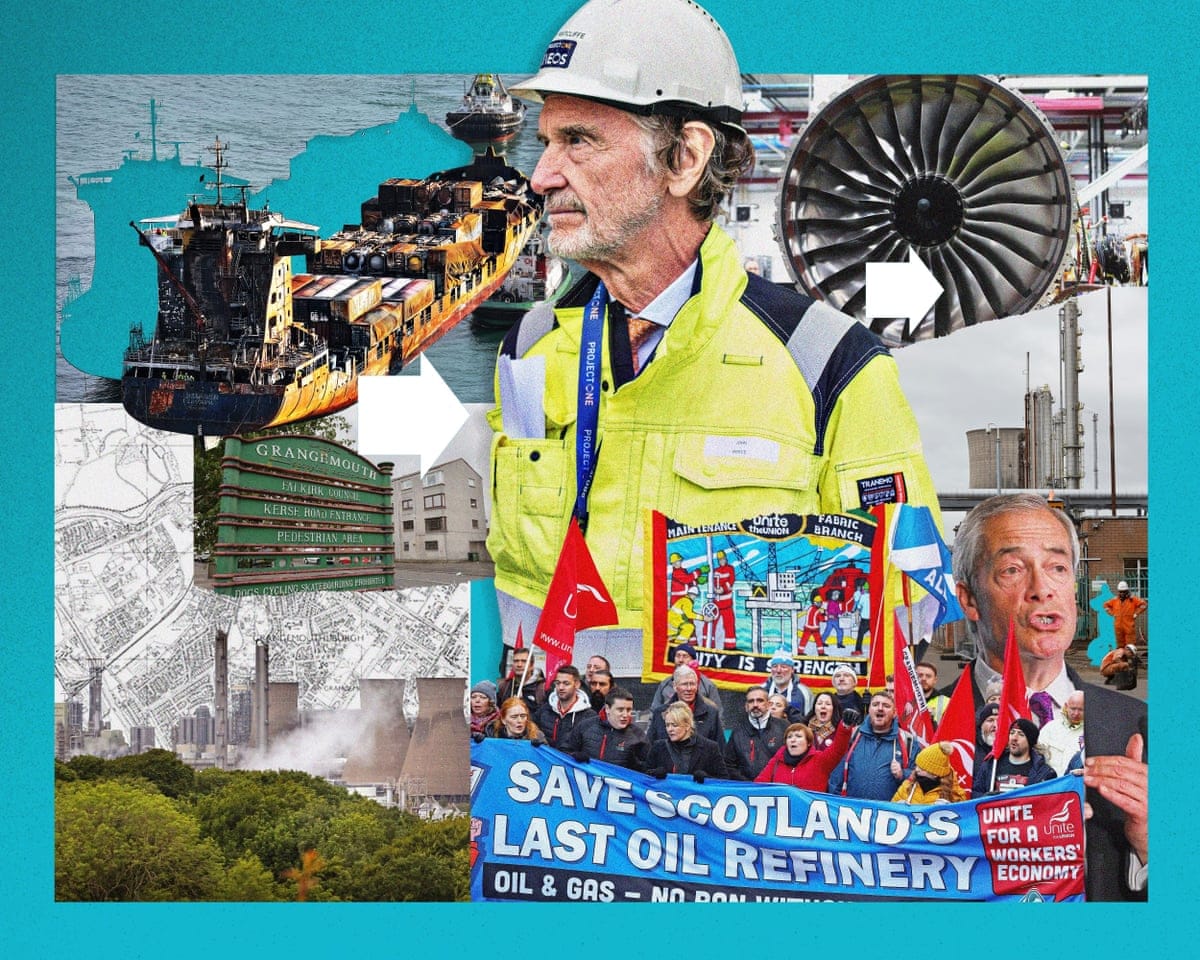Every morning in Grangemouth, laboratory specialists at Celtic Renewables’s small processing centre feed a vial of microbes with a precisely chosen mixture of nutrients – liquid residues from the scotch whisky production industry.
Within highly equipped glass vessels surrounded by a web of metal conduits and gleaming stainless steel components, these microorganisms multiply rapidly, transforming into an initial concentrate for subsequent batches of acetone, butanol and ethanol – chemical building blocks essential for numerous everyday manufactured goods.
Celtic Renewables seeks further expansion: a facility ten times the scale of its present operation. Such development could play a role in revitalising Scotland’s chemical manufacturing sector following the closure of the Grangemouth refinery in April after a century of operation, devastating 400 positions. The major industrial complex is planned to be substantially reduced, operating as a fuel import facility with only 75 employees. Similarly, as many as 4,600 jobs linked indirectly through the refinery's operations could be threatened.
This event has positioned Grangemouth as one of several early examples illustrating the potential viability of a "just transition": the hypothesis that an economic restructuring from fossil fuel dependency towards achieving net zero emissions can proceed with relative ease, perhaps facilitated through suitable governmental support mechanisms designed to foster new employment opportunities.
The ruling Labour administration worries that a negative outcome might result in public scepticism, potentially undermining not just the net zero climate targets set for 2050 but also support for its overall policy agenda, throughout the remainder of Scotland’s economy which remains fundamentally reliant on fossil fuel extraction. Although climate initiatives at the governmental level retain comparatively popular backing across Britain, opponents like those affiliated with the Reform UK party, under its leader Nigel Farage, maintain that resisting the net zero goals offers promising avenues for electoral success.
Amidst the release this week of a new national business strategy, this editorial – the second piece in a sequence examining the future prospects of predominately deindustrialised regions in the United Kingdom – focusses on the destiny of one of Scotland’s industrial archetypes.
Since concluding hostilities in the second world war, widespread sector decline has erased much of Scotland’s historical dependence on coal mining, shipbuilding, and steel fabrication – industries that previously dominated employment patterns connecting Glasgow and Edinburgh. Nevertheless, Grangemouth has endured as a significant industrial centre, historically refining original crude oil supplies to service Scotland’s automotive vehicles and aircraft departing from Glasgow and Edinburgh airports.
Examining the timeline, Grangemouth’s refinery lineage traces back to establishment in 1924, rendering it the second oldest such facility within the entirety of Europe. Since 2005, these processing operations have formed an integral component of Jim Ratcliffe’s Ineos large-scale chemical manufacturing interests. Ratcliffe’s business approach involved strategically integrating assets previously deemed unattractive to other companies, subsequently generating very substantial financial profits. In 2011, Ineos facilitated the creation of a cooperative arrangement, known as a joint venture, with an established Chinese petroleum corporation; this affiliate is designated as Petroineos.
Significant expenses are associated with providing and managing offshore facilities. Petroineos representatives conveyed arguments before sessions of the Scottish parliament, asserting that Grangemouth lacks the ability to match newer designs and potentially lower operational expenses observed globally in favourable regions such as the Middle East and Africa. Statistics issued by the official United Kingdom statistical office (Office for National Statistics) reflect a dramatic decline, recording a 42% reduction in overall UK chemical output starting from March 2020.
Mr Ratcliffe finds himself subject to considerable criticism regarding dispositions announced previously which reduced staffing levels within both sections of his chemical network and at Manchester United Football Club – assuming operational command of this prominent sports organisation occurred earlier last year. However, he offers that these changes were instigated by the United Kingdom government concerning energy economics policy frameworks, whereas he himself ruled out measures personally deciding on deficits.
Read next

Ryanair plane had only six minutes of fuel upon Manchester landing, records show
Flight Narrowly Avoids Disaster After Storm Diversion
An inquiry has been launched after a Ryanair flight, struggling against severe winds during storm Amy last week, landed at Manchester Airport with only six minutes’ worth of fuel remaining.
The aircraft had been transporting passengers from Pisa, Italy, to Prestwick, Scotland, on

"Qantas customer data for 5 million exposed as hackers release info post-ransom deadline"
Hackers Leak Personal Data of 5 Million Qantas Customers on Dark Web
A cybercriminal group has released personal records of 5 million Qantas customers on the dark web after the airline did not meet their ransom demand.
The breach is part of a larger global incident affecting over 40 companies,

Investors flee record-high UK stocks as EU set to hike steel tariffs
Investors Withdraw Record Sums from Equity Funds Amid High Market Valuations
Data reveals that investors in the UK have withdrawn an unprecedented amount of money from equity funds over the past three months, driven by concerns over soaring stock market valuations.
According to the latest figures from Calastone, the largest

